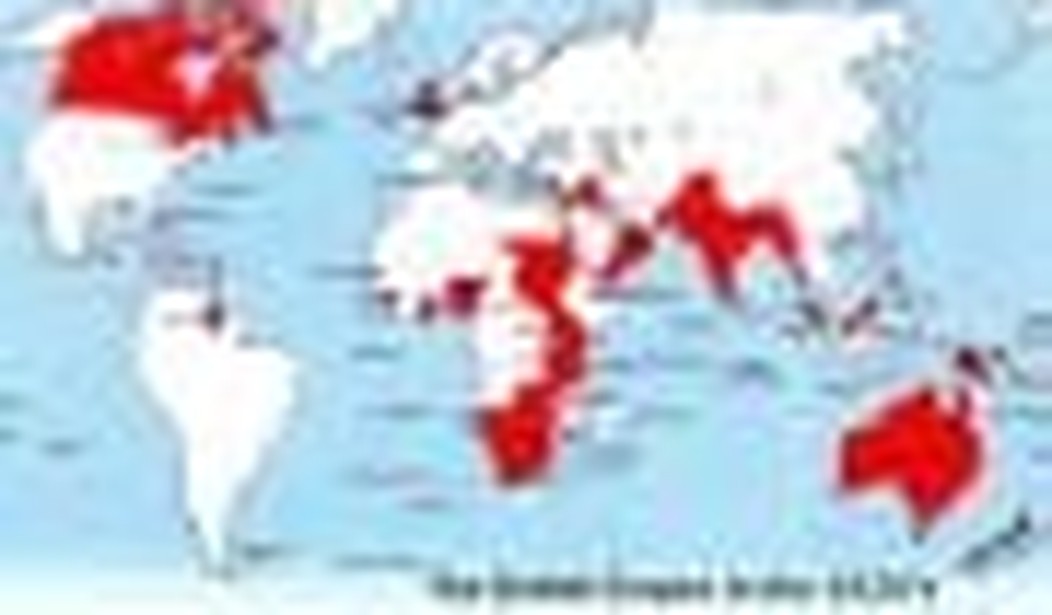On Christmas Day I spent lunch and tea listening to a long discourse about the demise of the British Empire.
This discussion did not derive of my own choosing; I had been invited to a neighbor’s flat for a festive meal and had hoped politics and history would not creep into the proceedings. Sadly my hopes were dashed when the hostess decided to launch into a lecture about the origins of the end of empire. She posited that the United States had been the driving force behind the collapse of British imperial ambitions.
This dear lady is a cultured and well-read individual and can be a formidable debater. I kept quiet as she explained that a succession of American administrations had set out to dismantle British hegemony in the world. Be it India, Africa, Palestine, Suez, Northern Ireland, or lands further afield, she said the Americans had been hell-bent on making sure the centuries-old colonial structure was undermined and then brought to an end wherever it may lurk.
What I found so implausible about this assertion is the notion that American presidents, lawmakers, and ordinary citizens were sitting in their respective homes deliberating on the obliteration of an ally’s interests around the globe. What was America’s biggest obsession in the 1920s? My contention is that the Bolshevik revolution and rise of the Soviet Union was at the top of any leader’s list as that decade unfolded. From Woodrow Wilson onward, the emphasis was on developing America’s industrial heartland and keeping Wall Street booming. Likewise the reactionary and isolationist lawmakers and presidents elected in the 1920s were not, I hasten to stress, hell-bent on bringing down the British Empire. The suffering of the corn and farm belts during the Great Depression of the 1930s was immense and the project on which Franklin Roosevelt had embarked to save his country from utter desolation was manifold. At the same time, the threat of Stalin’s Soviet Union and of internal communist infiltration was uppermost in the thoughts of lawmakers, intelligence officers, and leaders. The German American Bund and rising anti-Semitism, due to the suspicion that many Jewish-American immigrants were fifth-columnists wedded to communism, was a significant element in the public discourse of the 1930s. After the war there was a wave of trials, the Nixon-Alger Hiss hearings, and the Jerry Voorhis-Helen Gahagan Douglas cases culminating in the execution of Julius and Ethel Rosenberg as atomic spies. The communist threat had become an American fixation, not the threat of Britain. It could be mooted that the rise of socialism and of the welfare state under Clement Attlee after the war raised American hackles, but I do not see how this could be interpreted as an effort to disable British power.
Before sitting down to write this article I decided to research my hosts’ contention that America set out to dismantle the empire nearly one hundred years ago. I searched for core material and could not find much academic work that could back up this theory, although it is accepted that President Eisenhower hung Britain out to dry during the Suez crisis of 1956. France, Israel, and Britain took on the Egyptian dictator Gamal Abdel Nasser when he nationalized the Suez Canal; the three nations were abandoned at the crucial hour by the United States. It is said Americans could not buy a drink in British pubs and were refused service in other establishments.
Does this constitute “bringing down the empire?” I think not.
My hosts took me back to the partition of India; the closest material I can find on this theory is an article comparing the plight of Confederate President Jefferson Davis to Muhammad Ali Jinnah, the founder of Pakistan. Subhash Sharma observes that Davis is never referred to as a “great American,” but that Jinnah is revered as a “great Indian” amongst a great swathe of historians even though he facilitated the division of the Indian continent. But America creating this division and end of empire? I can find nothing.
There is no doubt that American supporters of NorAid set out to undermine British rule in Northern Ireland by raising funds for the Roman Catholic IRA (Irish Republican Army). In a December 2009 radio documentary special, BBC Radio Four reported that in 1979 British Prime Minister Margaret Thatcher was incandescent with rage when President Jimmy Carter could not supply her army with Luger pistols. He was worried about the upcoming election and did not want to antagonize the Catholic vote. NorAid was reported to have raised enough money in the meantime inside the United States to supply the IRA with one thousand pistols. Was this an attempt to dismantle the last vestiges of empire? I am not convinced.
Did the United States covet the oil in Africa, the Middle East, and the Gulf controlled by Britain? How could it not? Can I find documentary evidence of a succession of American presidents making a concerted effort to destroy British hegemony? No. It is not likely Palestine was in the viewfinder. It was a sandy wasteland with no oil, riven by strife between Jewish and Arab residents of that beleaguered strip of territory. British servicemen came under attack from Jewish freedom fighters; their departure from Palestine was bloody and tinged with tragedy for both sides of a conflict that resulted in the establishment of Israel. Again, it is a fact that since the establishment of the Jewish state, the United States has built up a presence in the region and sees Israel as a regional military ally. Did America work to undermine British control? Again, I am not convinced.
British North America did become a source of contention during the War of 1812; the United States unsuccessfully attempted to extend its border northwards. It was a violent and destructive war resulting in the sacking of York in Canada by American troops and of Washington, D.C., by British forces. Britain and America never went to war again. The last major territorial challenge between the two countries, the Oregon boundary dispute, was settled without bloodshed in 1846.
Almost two centuries on, Britain and the United States appear to be steadfast allies. If Pajamas Media readers feel I have missed an important example of the British Empire’s demise at the hands of the United States, please blog below.









Join the conversation as a VIP Member